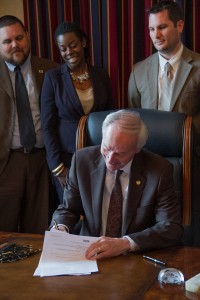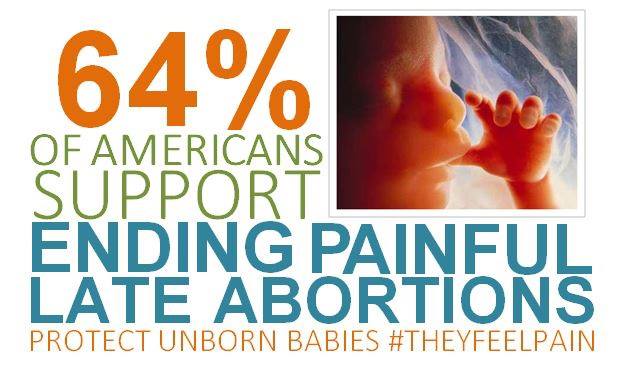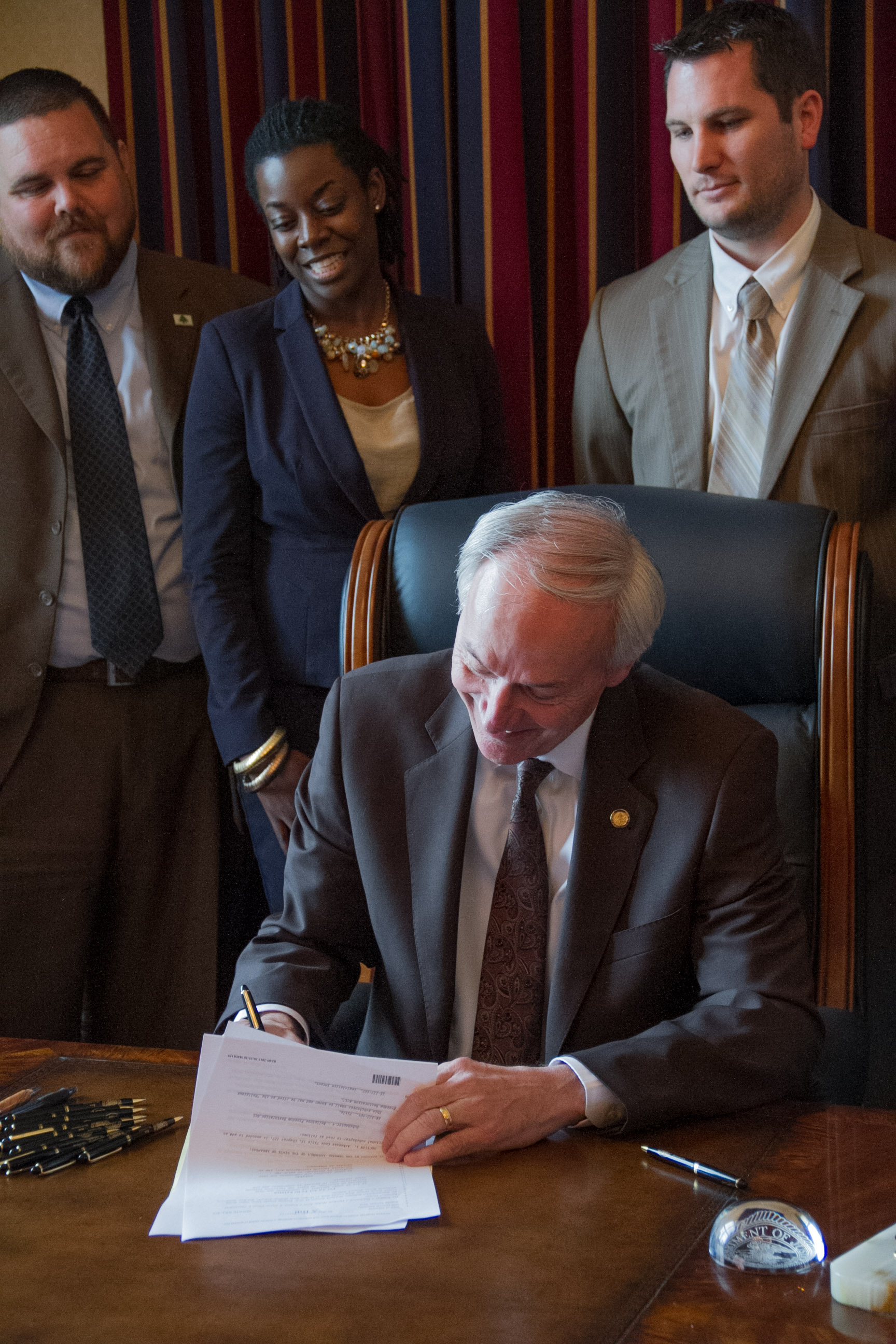 Many people still do not fully understand Act 975, Arkansas’ new Religious Freedom Restoration Act.
Many people still do not fully understand Act 975, Arkansas’ new Religious Freedom Restoration Act.
What does this law do? Is it different from H.B. 1228, the first religious freedom bill the Arkansas Legislature sent to Governor Hutchinson? Why is this law even necessary?
We have the inside scoop.
Attorneys at Alliance Defending Freedom have prepared an excellent analysis of Act 975. They compare it with H.B. 1228 and Indiana’s religious freedom law.
You can download ADF’s excellent analysis of the law here.
Here is our analysis of Act 975:
The Inside Scoop on Arkansas’ New Religious Freedom Law
Summary: Act 975 of 2015, the Religious Freedom Restoration Act (RFRA), is a very strong law protecting religious liberty. It includes the same legal balancing test that is in federal RFRA, the RFRAs of 20 other states, and U.S. Supreme Court case-law dating back nearly a century. This law will protect the religious freedom of Arkansans in the same way that the other RFRAs have protected the rights of other Americans. It will protect the right of all Arkansans to live and work according to their faith by ensuring that they have a claim or defense to raise in court if the government tries to force them to violate their faith.
The History of RFRAs in America
In 1990 the U.S. Supreme Court issued its Employment Division v. Smith decision effectively changing the definition of “the free exercise of religion” and undermining the protections afforded religious liberty. In response, Congress almost unanimously passed the federal Religious Freedom Restoration Act restoring those protections under federal law, and twenty states passed laws restoring those protections under state law. These laws reinstate the “compelling interest” test used to protect religious liberty from government infringement: The government may only infringe a person’s free exercise of religion if the infringement is necessary for a compelling governmental interest—such as enforcing criminal law—and carried out in the least burdensome manner possible. This is the same test used to protect other constitutional liberties from government infringement.
Act 975 of 2015 vs. H.B. 1228
Synopsis: The Arkansas General Assembly passed H.B. 1228 before finally passing Act 975. While H.B. 1228 contained greater clarity and made explicit in certain provisions what is implicit in Act 975, the legal test in Act 975 is the same legal test that H.B. 1228 (and all other similar laws around the country) had to protect religious freedom. The substance of both bills is virtually the same.
Similarities Between Act 975 of 2015 and H.B. 1228
- Act 975 and H.B. 1228 both protect the free exercise of religion from government infringement unless the infringement is necessary to further a compelling governmental interest and mitigated as much as possible.
- Both bills rely on case-law and existing court rulings to empower them to protect religious liberty.
- Any legal argument made under Act 975 will be the same as any argument that would have been made under H.B. 1228.
- Both bills ensure courts apply the legal test of “strict scrutiny” whenever government’s actions burden religious freedom. That means religious liberty gets as much protection as possible.
Primary Differences Between Act 975 of 2015 and H.B. 1228
- Act 975 lacks many of the definitions found in H.B. 1228. However, many of the details found in H.B. 1228 are also found in case-law. Act 975 should be enforced in accordance with that case-law—meaning in practice Act 975 ought to be interpreted in much the same manner as H.B. 1228.
- H.B. 1228 stated explicitly what is implicit in Act 975. However, despite being less detailed than H.B. 1228, an intellectually-honest judge ought to interpret Act 975 very similarly to H.B. 1228.
Frequently Asked Questions About RFRA
- Is this law about discriminating against homosexuals?
Answer: Discrimination and sexual-orientation are not even mentioned in the law. This law is about fairness and ensuring that every citizen of Arkansas has a fair day in court when government action is forcing them to violate their beliefs. The law simply restores the protections for every person’s ability to live according to their beliefs without unreasonable government intrusion that existed for decades prior to 1990. - Why is this law necessary?
Answer: This law is necessary to protect religious freedom under Arkansas law. In 1990 the U.S. Supreme Court issued its Employment Division v. Smith decision effectively redefining the free exercise of religion and undermining protections historically afforded to religious liberty. In response to this ruling, Congress passed the federal Religious Freedom Restoration Act, and many states passed similar laws as well. - Is this law weaker than H.B. 1228 initially passed by 2/3 of the Arkansas Legislature?
Answer: Not necessarily. This was not a choice between a good law and a bad law; this was a choice between a good law and a clearer law. H.B. 1228 is stronger in the sense that it was much more clearly written based on case-law and the experiences of more than twenty other states. However, Arkansas’ new RFRA accomplishes exactly what H.B. 1228 was intended to do: It ensures religious freedom is protected in a manner similar to other constitutional liberties. H.B. 1228 is arguably a better law, but Act 975 is still a very good law. - Will Act 975 Protect a Photographer, Baker, Florist, Minister, or Other Person Who Does Not Want to Participate in a Same-Sex Wedding?
Answer: Act 975 does not determine court outcomes; it simply ensures that religious freedom gets a fair shake and requires the government to have solid reasons when attempting to force a person to violate his or her religious beliefs. Theoretically, that means, for example, a judge could not force a Christian photographer to photograph a same-sex wedding, a court could not force a Jewish synagogue to serve pork at a wedding held on its premises, and the government could not force a Southern Baptist church to allow alcohol at a wedding reception in its fellowship hall. However, in any instance it will be up to the person or organization to articulate their religious convictions and how the government’s actions force them to violate those convictions. It will also be up to the government to demonstrate there is a compelling governmental interest at stake. Ultimately, the court will fairly consider both sides using the legal standards found in Act 975—the same standards courts used in parsing religious freedom cases for decades prior to 1990. - Will Act 975 allow people to abuse children or engage in polygamy as part of their religion?
Answer: No, things such as child welfare are very well established “compelling governmental interests.” The federal Religious Freedom Restoration Act has never been used in that manner. No state religious freedom law has been used that way, either.




